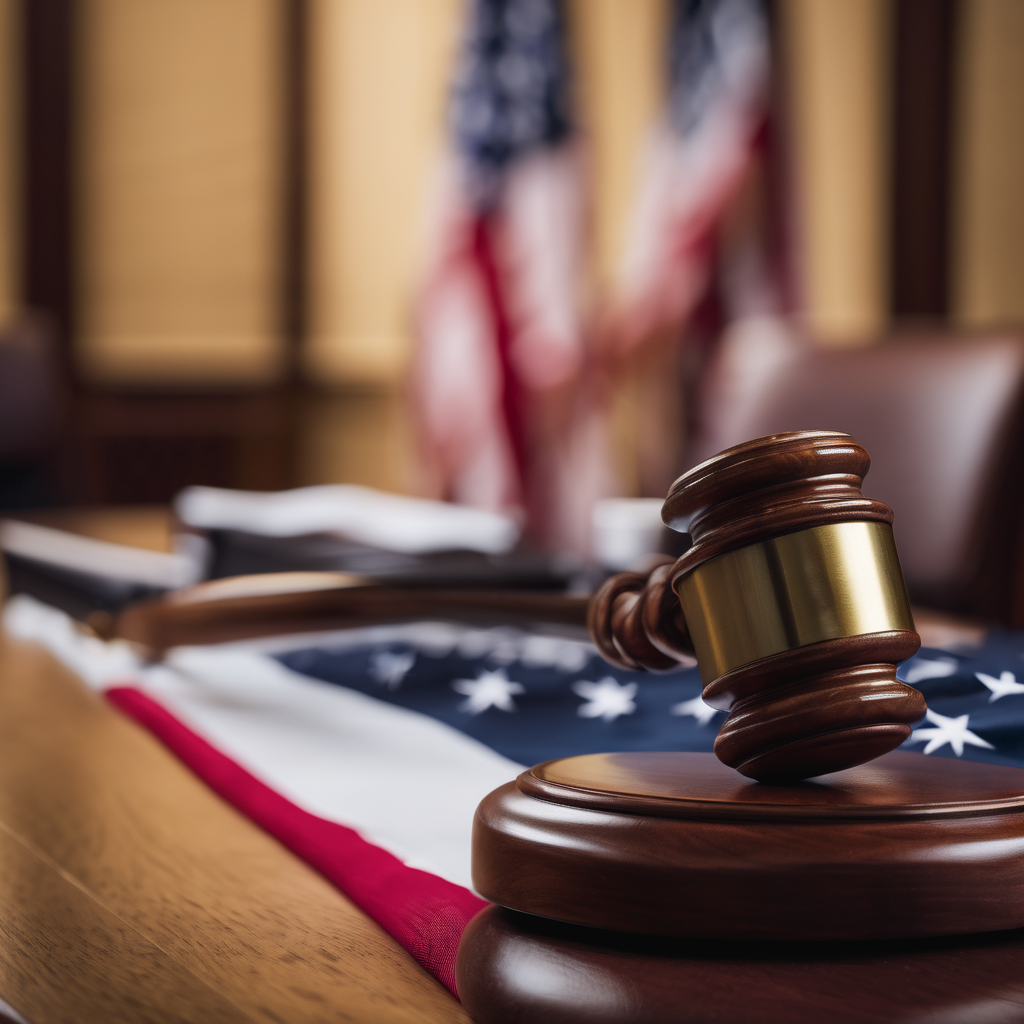In a tense courtroom showdown on Thursday, attorneys for former FBI Director James Comey and New York Attorney General Letitia James faced off against representatives of the Justice Department regarding the legitimacy of President Donald Trump’s appointment of a prosecutor to pursue charges against them. The focus of the court case is interim U.S. Attorney Lindsey Halligan, who Comey’s legal team claims acted without proper authority in presenting the case to a grand jury.
During the hearing, Comey’s attorney, Ephraim McDowell, raised concerns that Halligan, who was appointed under questionable circumstances after the prior interim U.S. Attorney was allegedly pressured to pursue indictments, lacked the necessary authorization to pursue the case against his client. Both Comey and James have denied any wrongdoing, pleading not guilty to charges including making false statements to Congress and bank fraud, respectively.
The crux of the legal argument revolved around the interpretation of a 120-day limit for interim U.S. Attorneys. McDowell contended that if Halligan was able to operate beyond this limit without Senate confirmation or an extension, it undermined legal safeguards intended to ensure checks on executive power. He argued that such an appointment violated the Appointments Clause and the principle of separation of powers. Abraham Lowell, representing James, supported this by asserting that the government’s interpretation of the law would require the judge to alter the statutory language, a move he deemed unjustifiable.
Justice Department lawyer Henry Whitaker countered that the law permits the Attorney General to continue appointments beyond the specified timeframe, without the need for additional confirmation. He dismissed allegations of any procedural improprieties as a “paperwork error,” and emphasized that the Attorney General maintains authority to appoint qualified individuals, casting doubt on the notion of evasion of necessary confirmations.
The presiding Judge Cameron McGowan Currie called into question whether Attorney General Pam Bondi had thoroughly reviewed the proceedings related to the indictment of Comey, suggesting that a significant gap in the grand jury transcript raised concerns about the integrity of the indictment process. However, representatives for the Justice Department refuted claims of missing information, clarifying that the referenced time involved juror deliberation, which does not require transcription.
As the court deliberates on Halligan’s appointment, a ruling is expected by Thanksgiving, with both the Comey and James trials anticipated to take place in January. This ongoing legal battle continues to shed light on complex issues surrounding executive power and legal accountability, suggesting that rigorous scrutiny of such appointments is essential in preserving the integrity of the judicial process. While the proceedings unfold, it remains a crucial reminder of the importance of checks and balances within the legal system, aimed at safeguarding justice and fairness.
